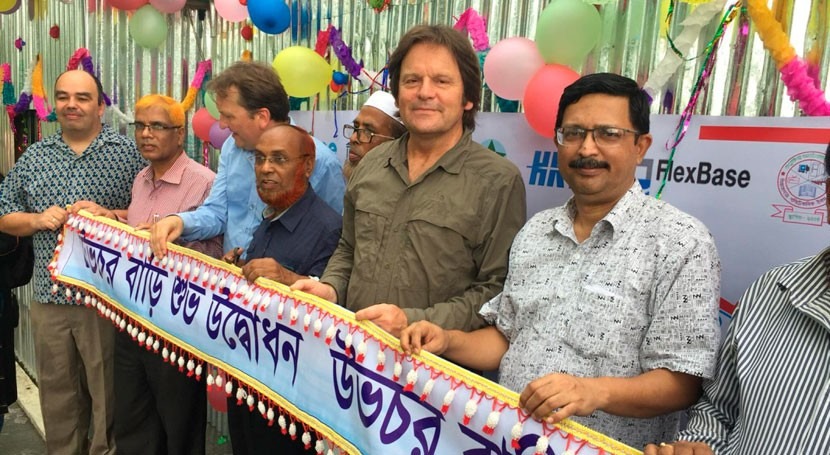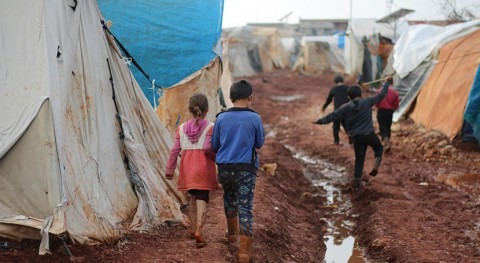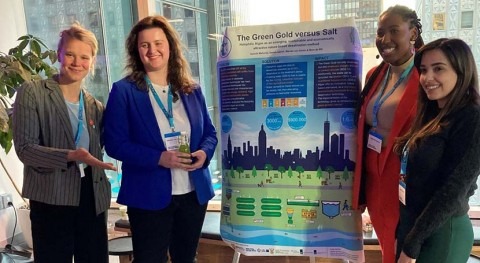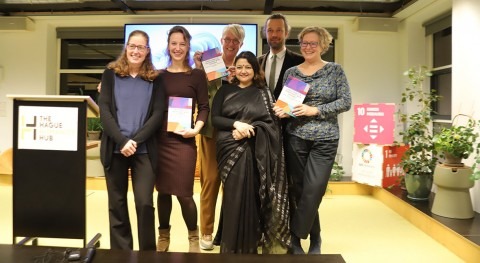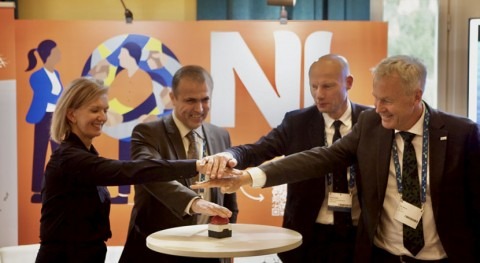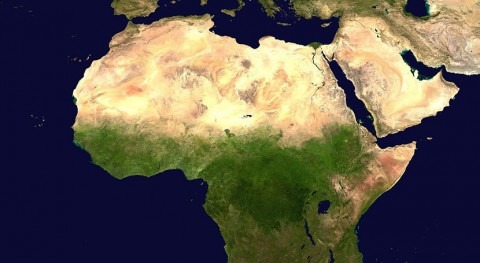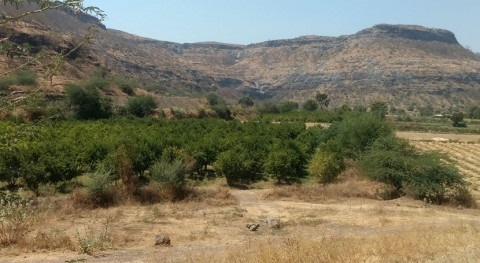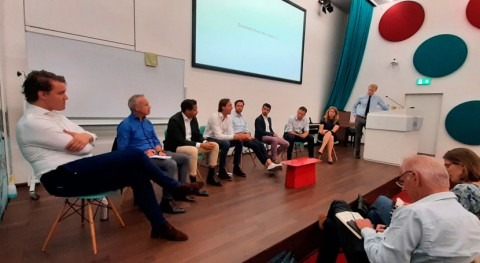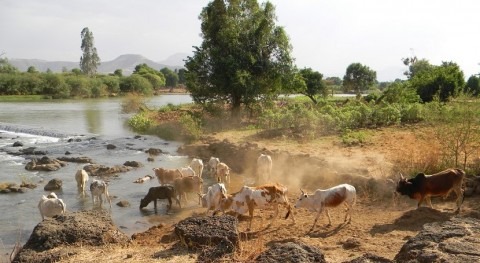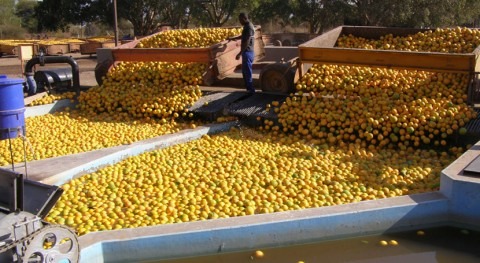An official inauguration ceremony on the newly constructed amphibious house marked the opening of the learning space in Sirajganj, Bangladesh. This learning space acts as a living laboratory, a key ingredient of the CORE Bangladesh project spearheaded by IHE Delft.
The opening marked the completion of the first stage of the project, which focusses on the adoption of small-scale flood resilient technologies and practices in peri-urban communities in Bangladesh. In a co-creation process with local Bangladeshi manufacturers, 7 Dutch SMEs have been developing innovative prototypes that tackle a variety of flood-related challenges. These range from amphibious sanitation units, flood resilient retrofitting kits for low-cost housing, sustainable small scale dike reinforcement to controlled seedling-beds to enable local farmers to grow cash-crops that require stable water level.
The collaborating SME's are: Field Factors, Flexbase, Green Soil Bag, HKV, Tube Barrier, Urban Wetlands and Wetskills.
Obviously, the prototypes are incorporating local construction techniques and materials in order to minimize costs and ensure better uptake by local communities in Bangladesh. Now local workshops are encouraging participants to improve the prototypes or develop totally new proposals.
Flood resiliency starts at grass-root level
Although located in a regional city along the Jamuna River, the project attracted the attention of national TV and press. Embedded in a peri-urban community, the learning space is the first of its kind. Local community leaders emphasised the importance of investing in flood resiliency at grass-root level, which might prove an essential component in securing a sustainable future for a country that is learning how to live with water rather than fighting it. While the recently adopted Bangladesh Delta Plan 2100 provides a much needed long-term roadmap for managing the many water challenges the country faces in the coming decades, there is little attention in the plan for small-scale local projects. Yet, these are not only essential, but also complementary to the big infrastructural water projects that Bangladesh will undertake in the coming decades.
Future plans and upscaling
In the remaining two years, CORE Bangladesh will focus on monitoring the performance of the prototypes from a technical perspective and also on how they impact the community, local manufacturing and governance. This is essential in order to identify the enabling conditions that are required for maturation of the prototypes and upscaling the project to viable flood resilient practices, including a locally driven flood proofing industry.


